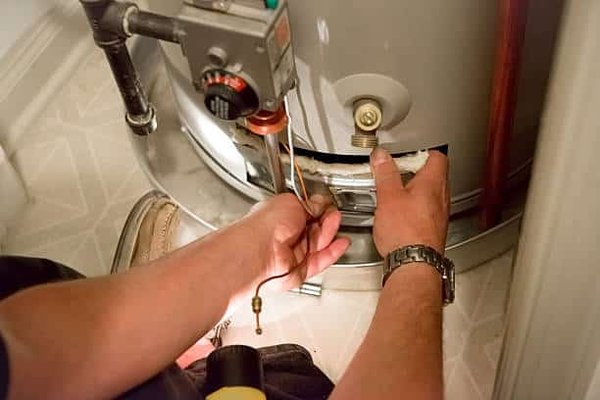The absence of hot water is a major domestic inconvenience, affecting our everyday comfort. However, this annoyance is often caused by easily identifiable technical faults. Let's take a look at the main factors likely to be involved in the production of hot water in our homes.
Boiler or water heater failure
The boiler and the hot water tank are the key components in the hot water production circuit. A fault in one of these pieces of equipment will inevitably lead to a disruption in the supply. There are a variety of potential causes: ageing components, clogging, leaks or electrical faults.
Most boilers and water heaters have warning lights that indicate the error codes in the event of a fault. Consult the appliance manual to understand the meaning of the lights and identify the source of the problem. If the water pressure is too low, the boiler or hot water tank may not work properly. The ideal pressure is generally between 1 and 1.5 bar.
Looking for signs of leakage, corrosion or visible wear on the appliance can give an indication of the source of the fault. In addition, annual servicing by a qualified professional
plumber Paris can detect and correct early problems.
Electrical supply problems
Many hot water systems, such as electric water heaters or certain boilers, depend on a continuous power supply. A power cut, a faulty circuit breaker or any other electrical incident is therefore likely to momentarily paralyse the production of hot water.
Ventilation faults
Ventilation is an essential prerequisite for the smooth operation of many boilers. A blocked flue or insufficient combustion air supply can cause the system to shut down automatically for safety reasons.
Scaling and limescale build-up
Limescale in the water can, over time, clog the pipes and components of heating systems. This phenomenon, known as entrainment, reduces the efficiency of the equipment, sometimes to the point of rendering it completely inoperative.
What should I do if my hot water fails?
If your hot water fails, it's important to take the following steps:
Identifying the source of the problem
When faced with a sudden absence of hot water, it's vital to adopt a methodical approach to identify and resolve the problem as quickly as possible. The first step is to isolate the source of the fault. Start by cutting off the power supply to your water heater or boiler to eliminate any risk. Then carry out a detailed visual inspection of the equipment and its immediate surroundings.
Look out for any warning lights, suspicious leaks or abnormal noises emanating from the system. These telltale signs can point you to the likely source of the fault.
Repair the problem if possible
If the fault is minor, such as a tripped circuit-breaker or a blown fuse, you may be able to repair it yourself. Once you've identified the potential cause, you may be able to fix the problem yourself if it turns out to be minor. A simple tripped circuit-breaker or a blown fuse are examples of minor faults that you can easily resolve yourself.
Call in a professional
On the other hand, if you still have doubts, or if the fault seems more serious, don't hesitate to call on the skills of a qualified professional. An experienced plumber or heating engineer will have the technical knowledge and tools needed to carry out a thorough diagnosis and implement the appropriate solution.
This will prevent you from embarking on risky repairs that could make the situation worse.
Whatever the extent of the hot water problem, the key to restoring optimum comfort as quickly as possible lies in reacting promptly and carefully.
Prevention is better than cure: how to reduce the risk of hot water failure
Although hot water failures are mainly caused by technical problems, regular maintenance of the equipment can considerably minimise the risk. Prevention is in fact the best weapon against the inconveniences associated with the absence of hot water.
One of the most important things you can do is to empty your electric water heater every year, to remove accumulated limescale deposits. Boilers, meanwhile, require thorough cleaning of the burner and nozzle to ensure optimal operation. The water pressure in the circuit should also be checked regularly, and worn parts replaced before they cause a breakdown.
Preventive maintenance is a wise investment, helping to extend the life of your equipment while maintaining long-lasting domestic comfort. Simple but essential steps to avoid the inconvenience of hot water failure.
In conclusion, there are many possible reasons for a hot water failure. However, by identifying the root cause and taking appropriate corrective action, service can usually be restored quickly and under optimum conditions.
